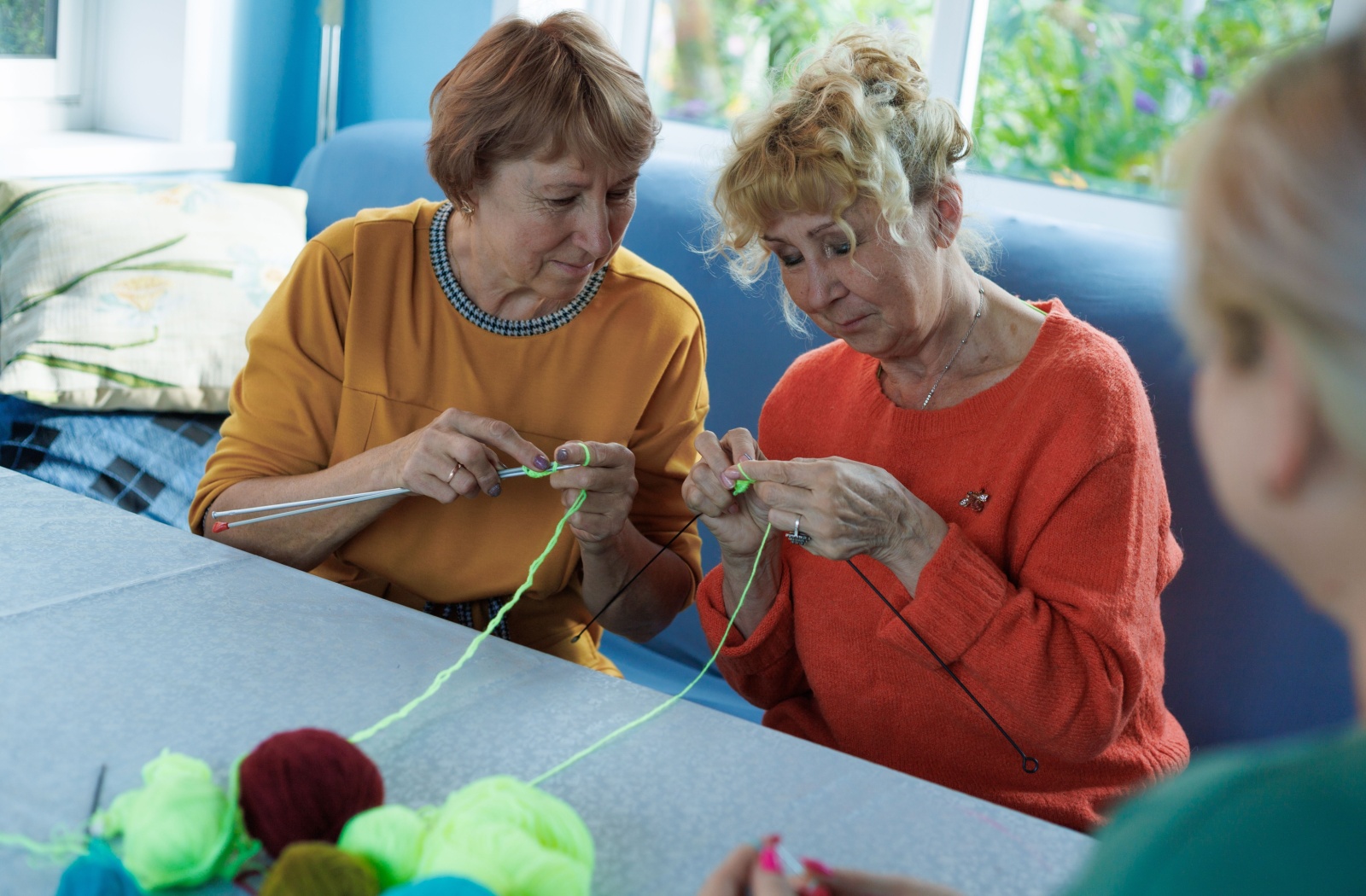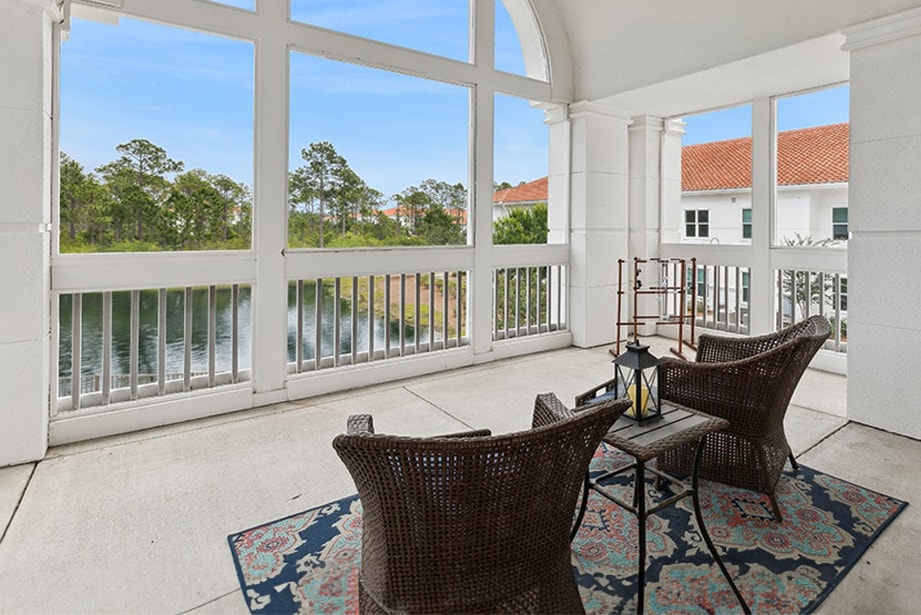Navigating the decision to consider assisted living for a loved one isn’t as simple as waking up one day and knowing it’s time. Some signs it might be time to consider assisted living include:
- A decline in physical health
- Concerning memory loss
- Difficulty managing daily tasks
- Increasing social isolation
- Safety concerns
- Family caregiver burnout
Recognizing the signs that indicate it might be time for assisted living can make this process smoother and more informed. And knowing when more advanced care might be necessary is also essential. For example, if memory loss is the primary concern, assisted living may not be an option because these communities aren’t equipped to handle advanced cognitive decline. But a senior community offering memory care may be beneficial.
Decline in Physical Health
There are a few things with your loved one’s physical health that could indicate assisted living may be needed.
Observable Changes in Mobility
A noticeable decline in mobility is one sign that assisted living may be necessary. Have you observed your loved one struggling to walk or get up from a sitting position? Frequent trips and falls could indicate a need for a more supportive environment.
Hygiene Concerns
If you notice that your loved one is not bathing regularly, wearing the same clothes for days, or neglecting oral care, this may be a sign they need help. Assisted living communities offer daily assistance with these tasks, ensuring proper hygiene is maintained.
Eating Habits
Changes in eating habits can also signal the need for assisted living. If your loved one is losing weight or forgetting to eat, they might benefit from the structured meal plans and assistance provided in an assisted living setting.
Concerning Memory Loss
Some slight memory loss is expected as one ages, but dementia is not a normal part of aging. Assisted living may be beneficial for mild cognitive decline. But if your loved one is diagnosed with dementia, they will need more advanced care than an assisted living community can offer.
Memory loss is a significant concern, especially if it affects daily living. Are there instances where your loved one forgets important dates, misplaces items frequently, or repeats the same questions? These signs of forgetfulness can hinder their ability to live independently.
Depending on the situation, when memory loss starts impacting daily routines, it may be time to consider assisted living or memory care.
Difficulty Managing Daily Tasks
Assisted living may be a boon if managing their daily lives becomes too challenging for your loved one.
Household Maintenance
Maintaining a household requires a lot of effort and can become increasingly difficult with age. If your loved one finds cleaning, doing laundry, or performing other household chores challenging, it may be time to consider assisted living, where dedicated staff help manage these tasks.
Managing Finances
Financial management can become overwhelming for seniors. If you notice an uptick in unpaid bills, overdue notices, or confusion about financial decisions, your loved one might benefit from the financial assistance, simplified costs, and additional oversight available in assisted living communities.
Medication Management
Proper medication management is crucial for health. Missing doses or taking incorrect medications can have serious consequences. Assisted living communities offer medication management services, ensuring residents take the proper medications at the correct times.
Social Isolation
Social isolation can negatively impact mental health. If your loved one spends most of their time alone, it might indicate the need for a more socially engaging environment. Assisted living communities provide numerous opportunities for social interaction and activities.
Being socially isolated can lead to feelings of loneliness and depression. Assisted living offers a community setting where residents can build friendships and participate in group activities, fostering a sense of belonging.
Engaging in activities is essential for mental stimulation. Assisted living communities often have various programs and events designed to keep residents active and engaged, preventing feelings of isolation.

Safety Concerns
Several aspects of safety may indicate the need for assisted living.
Home Safety Risks
Home safety can be a significant concern for seniors living alone. From falls to fires, many risks can threaten their well-being. Assisted living communities are designed with safety in mind, offering features like handrails, emergency call systems, and 24/7 access to support.
Benefits of Secure Living
A secure living environment provides the senior and their family peace of mind. Knowing that your loved one is in a place where they can receive immediate help if needed can significantly alleviate concerns.
Preventative Measures
Assisted living communities often have preventative measures in place to avoid accidents. Regular health check-ups and tailored care plans help monitor and maintain residents’ health and safety.
Family Caregiver Burnout
It’s a testament to the family bond when a loved one, such as an adult child, steps up to care for their aging parent. But this can eventually become too much for an untrained person to handle.
Signs of Burnout
Providing care for a loved one can be physically and emotionally taxing. If you notice signs of burnout, such as fatigue, irritability, or feeling overwhelmed, it might be time to consider assisted living. This allows you to focus on your relationship rather than caregiving duties.
Impact on Health
Caregiver burnout can negatively impact your health, leading to stress-related issues. Assisted living can provide relief, ensuring your loved one receives professional care while you take care of yourself.
Seeking Support
It’s essential to seek support when you feel overwhelmed. Assisted living communities offer resources and support for residents and their families, ensuring everyone’s well-being. For example, respite care may be an option to give you a break without your loved one needing to commit to moving into an assisted living community permanently.
Making the Decision
Finding the right assisted living community is essential. Research communities, visit them, and ask questions to ensure they meet your loved one’s needs. Look for places that offer the care and support needed to address the signs you’ve observed.
Call our team at Somerby Santa Rosa Beach today. We’d love to schedule a community tour so you can see what our community has to offer your loved one.









